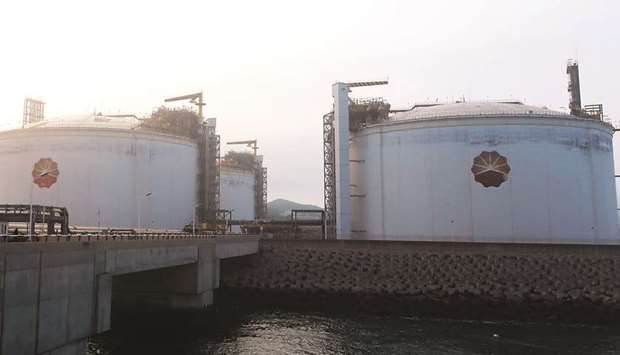Australia’s Woodside Petroleum shelved talks to sell stakes in a gas field and liquefied natural gas (LNG) project to Chinese firms because of the diplomatic row between Australia and China, the company’s chief executive said yesterday.
Chief executive Peter Coleman said the talks were stopped a few months ago but he hoped to revive them when the diplomatic spat subsides.
Diplomatic relations with China, Australia’s biggest trading partner, have soured after Canberra called for an international inquiry into the source of the coronavirus.
“They advised us a couple of months ago that they were just not able to proceed at this point due to the relations between China and Australia,” Coleman told Reuters in an interview.
Woodside had been in talks with China’s national oil firms, including PetroChina Co, and second-tier firms to sell a modest stake in the linked Scarborough gas field and Pluto LNG Train 2 project, which would have included gas sales.
Coleman said the frayed ties have not affected Woodside’s existing partnerships with Chinese companies in its major projects.
Australia is by far the biggest LNG supplier to China, making up about 40% of China’s imports in September.
Australian agriculture officials last week warned 400 exporters there had been recent customs delays in China and commercial losses, including live lobsters that died waiting for customs clearance in Shanghai.
Chinese officials have denied any co-ordinated action is being taken against Australian products.
Despite the Chinese claims, more Australian products are facing halts or bans.
Australia yesterday said China had stopped the import of all timber from the state of Victoria after customs officials said they had discovered pests.
Australia’s Agriculture Minister David Littleproud said the General Administration of Customs in China had informed the agriculture department that “all export of logs from the state of Victoria are suspended as of 11 November”.
The suspension notice was posted on the website of China’s General Administration of Customs on Wednesday.
It also said that Beijing had urged local customs in Guangdong province to further strengthen inspections on all Australian timber.
Local customs must return or destroy timber shipments found with quarantine pests and not dealt with effectively, it said.
“If the insects enter China, it will cause severe harm to Chinese agriculture production and ecological security,” Wang Wenbin, a Chinese foreign ministry spokesman, said at a daily press briefing yesterday.

LNG storage tanks are seen at PetroChina’s receiving terminal in Dalian, Liaoning province (file).
